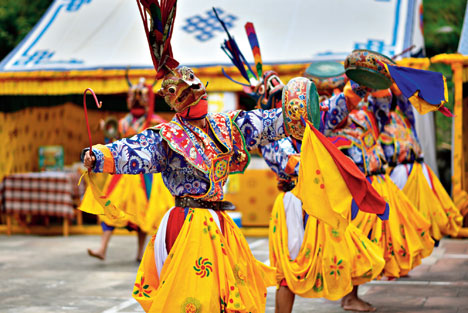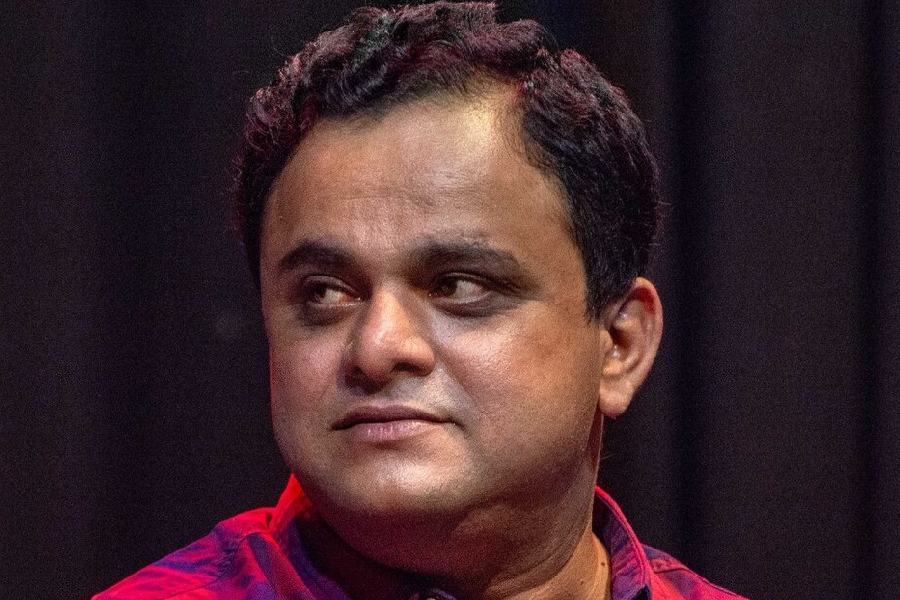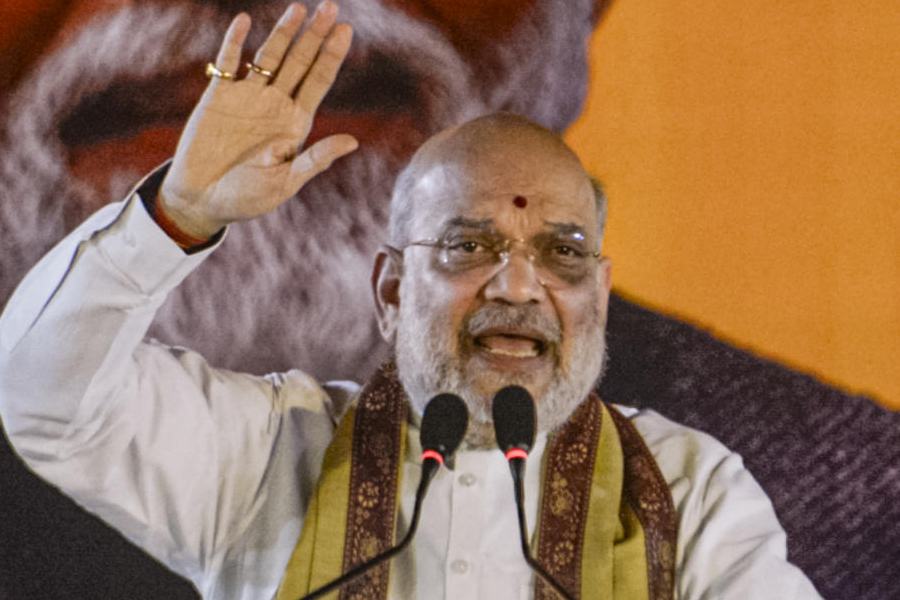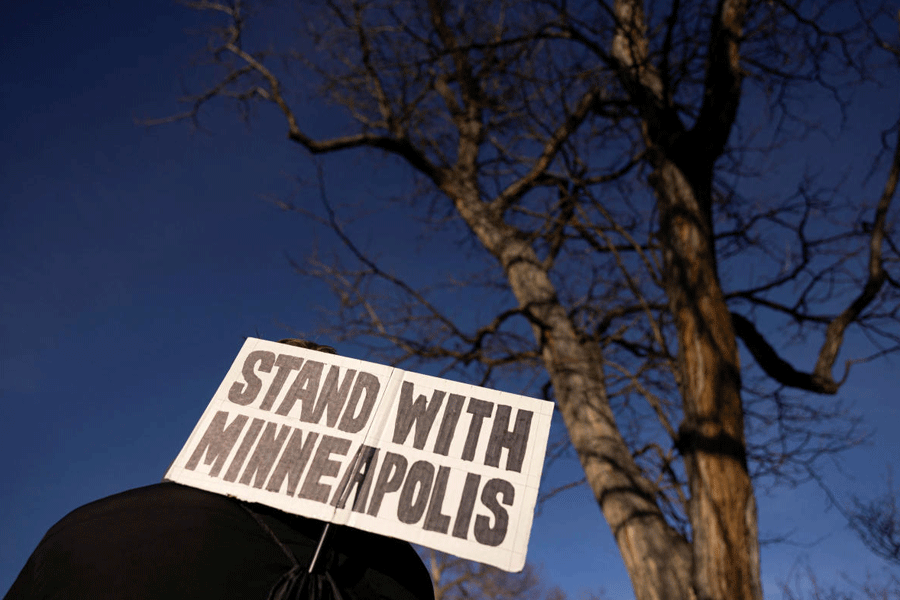
Landing in the picturesque town of Paro in Bhutan feels like traipsing into a Wes Anderson film set, with the blue of the sky and the towering green Himalayan range composing themselves into a fluid watercolour painting. For a literary festival named Mountain Echoes, there couldn’t be a better dramatic setting.
An initiative of the India Bhutan Foundation and organised in association with Jaipur-based literary agency Siyahi (led by Mita Kapur), Mountain Echoes enjoys the patronage of the Royal Queen Mother of Bhutan, Ashi Dorji Wangmo Wangchuck, who, at 63, doesn’t look a shade above 36.
For the ninth edition of the festival, which marked the golden jubilee of Indo-Bhutan diplomatic ties, an assorted bunch of writers, poets, actors, musicians, film-makers, scholars and environmentalists — mostly from the two countries and a few from around the world — had gathered between August 23 and 26 in the mountain town to share views and ideas.
The cultural exchanges would often be followed by steaming bowls of ema datshi, the Bhutanese national dish, and long adda over a drink or two in the evenings. So if Naseeruddin Shah aired his disappointment with the Hindi film industry and read poetry with his wife Ratna Pathak Shah at the morning sessions, you could catch him chatting animatedly about Roger Federer and the joys of playing tennis in Calcutta, after sundown.
Three days, 74 speakers, 51 sessions and a lot of running around between the three venues — the Royal University of Bhutan, Tarayana Centre and Taj Tashi — later, t2oS looks back at the highlights.

“INDIA’S GREATEST GIFT TO BHUTAN IS BUDDHISM...”
...Said the Royal Queen Mother Ashi Dorji Wangmo Wangchuck, after kick-starting the festival with a contagious smile, a hesitant attempt at PowerPoint and a moving tale of compassion.
“I remember, once on a trek on a steep hill that everyone had warned me about, I got tired towards the end. An old woman, who saw me panting, came up to me and hoisted me up on her back before I could even utter a word and hurried off towards the mountaintop,” said the grandmother whose sprightly gait is proof of the fact that she is still a regular trekker.
The caring side of the Bhutanese is not lost on the tourists — here cars stop to let pedestrians pass and people go out of their way to help each other. The Queen Mother stressed on the long friendship between India and Bhutan, recalling with gratitude the time when India sponsored Bhutan’s entry into the United Nations. “It is a friendship that is anchored on unwavering trust, goodwill, understanding, and mutually beneficial cooperation,” she said. And yes, her cheers at the sessions echoed the loudest.

“I NEVER REALLY WANTED TO BE AN ACTRESS”
Two women with theatre in their DNA are Ratna Pathak Shah and Sanjna Kapoor. And both want to reach out to kids in school as they feel it is important to familiarise young minds with theatre.
As a young girl, Sanjna was taken by the magic of theatre watching her parents Shashi Kapoor and Jennifer Kendall on stage; her father’s films failed to charm her though.
“I couldn’t do the cinema my dad was doing... at all! I remember being 15 and asking my mother, ‘Mum, how does he act in these films?!’ But by then three children, rozi-roti and two trips to England every year had happened and I guess he had to keep going, although he redeemed himself by putting his money where it mattered, like Prithvi Theatre,” said Kapoor, dressed in a striped cotton sari with big red roses in her hair.
Her vivaciousness was the perfect complement to the grace and poise of Pathak Shah, who, having grown up backstage watching mother Dina Pathak perform in “dramatic” Gujarati plays, didn’t warm to the idea of acting either. “I still hate the fact that when I see an exceptional production, I can’t help but rue about the technicalities that go behind it, instead of absorbing in the magic! I never wanted to be an actress,” she admitted at their joint session ‘All the world’s a Stage’. What a loss that would have been for all of us fans of Mrs Sarabhai!
Kapoor has remained in the world of her parents as an “actor manager” where she does the “dirty work of knocking on doors” and getting a platform so that people like Pathak Shah can shine on the stage. “I have acted in only one film with Naseer here, and I have watched that film exactly once... with my eyes half closed... from under the table,” she laughed. Her Hero Hiralal, seated in the front row, was laughing as well.
“IF YOU EVER ENCOUNTER A YETI, SPEAK THE LANGUAGE OF FOOD”
The hills were alive with the sounds of the fauna. From Daniel C. Taylor, the author of Yeti: The Ecology of a Mystery, to Dave Goulson, the author of Bumblebees: Behaviour, Ecology and Conservation, and tiger conservationist Valmik Thapar who has spent four decades tracking pug marks — nature and environment evoked the maximum concern at Mountain Echoes.
“I am not talking about tigers today. I have written 32 books on it, but today I am talking about keeping my subjects alive — the forests, the wilderness, the wild,” said Thapar.
Goulson rued the gradual extinction of bees and the different methods being adopted in various parts of the world to keep the food chain from crashing. “It fills me with absolute horror that people are trying to build robot-bees to replace the dying ones,” said the biology professor of University of Sussex, his account an eerie throwback to an episode in the sci-fi Netflix series Black Mirror where Autonomous Drone Insects replace bees after a sudden collapse in their population.
For American scholar Taylor, looking for the Yeti has been a lifelong passion. In the course he has adopted unique environment conservation methods to mobilise communities in the Himalayan region to safeguard the wildlife.
What would he do if he ever encountered a Yeti? “I would offer him or her some food!... The real Yeti is the wild animal that we have to nurture in ourselves,” he said, before asking his audience if they believed in the existence of the Yeti.
About 95 per cent of the hands went up, including the Queen Mother’s, which prompted Taylor to observe: “And why not? It makes for a great story.” But the man who has spent 60 years roaming the Himalayas for a sighting of the elusive Snowman didn’t seem to believe in it himself!

“POEM IS A VERB IN MY LIFE”
“I poem my way out of situations I can’t deal with,” said spoken word poet Sarah Kay from New York, before unleashing a power-packed performance featuring her popular works, B and The Type.
“The Type is a deeply personal poem where I am telling a woman to find her place in a world where men hold power,” said Sarah, who has clearly found her place, having been pushed to participate in a poetry slam at the age of 14. “All I knew then was that I liked poems and I thought maybe there would be other kids who liked poems,” she said when we caught up post-session. The 30-year-old from Brown University has travelled four times in India; on her first trip, she had hosted a youth poetry slam in Mumbai.
Sarah’s home in New York is close to Ground Zero and she discovered poetry right after 9/11; that was a time when “the adults in my life didn’t have the time to listen to us kids”.
“I would advise young poets to not fear writing bad poems. A lot of people have a myth around creativity, that you are either born with it or you are not, but this is not true. It’s a craft that requires time, so just keep going.... There is a bunch of research in the US that shows that the number of poetry readers in the country has doubled since 2002. Poetry is not dead, with the highest growing book category being poetry,” she added.
So stirring was Sarah’s spoken word performance that the Queen Mother requested for an encore at her dinner, having missed the morning session. The young poet obliged with another rousing performance... and then another at the Mojo Park bar.
“HER FATHER IS VIDHU VINOD CHOPRA, SO SHE GOT THE OPPORTUNITY”
Zuni Chopra and Pema Euden, both published authors at the age of nine and 12, respectively, turned out to be wise beyond their years and inspiring for the students in the audience at their session ‘We that are young’. “There was no book in Bhutan that was written by young people for young people, which is when I wrote Coming Home, my first book,” said Bhutanese girl Pema. Confronting issues like the “internal voice that deters you from putting your craft to test” to taking on people who said she got a leg-up for being film producer Vidhu Vinod Chopra’s daughter, Zuni put naysayers to rest by “showing them how it’s done”. We’d better watch out for both.
“I WAS A WOMAN, SINGING CABARET, IN CALCUTTA, IN A SARI”
When there’s Usha Uthup in the house, one can be assured of some music even if it’s a conversation on music she’s taking part in. Her energy is infectious, her singing is groovy, her candour is disarming. She talked of the time in school when the music teacher turned her out for her unusual voice, and when she ruled Trincas on Park Street, singing cabaret in a sari.
“Men started bringing their wives, sometimes even other people’s wives, to Trincas as women didn’t feel threatened about losing their man to someone with a face and body like mine! Soon it became a family place,” Usha said and laughed. Her session, moderated by Bhutanese journalist-actor-radio show host Kunga Tenzin Dorji, was aptly named ‘One Two Cha-Cha, Cha’.

“SHAMMI KAPOOR GAVE FORM TO THE SONG-AND-DANCE SEQUENCE IN BOLLYWOOD. NO ONE ELSE HAS OR CAN”
Naseeruddin Shah is angry. He is pissed off with present-day Bollywood and he does not mince words. “I am not at all optimistic about the film world in Bombay as it is hard to find anything creative, anything visual worth noting, anything that would give food for thought. It’s all just fluff,” he said on Day One.
Like many of us, he refuses to buy the argument that movie makers produce the kind of content that the “audience wants”. “It was fashionable to take a mild anti-establishment stance. They all started in the ’70s to make movies that they believed in but a movie or two later, they wanted a larger audience.... My favourite actors in Bollywood were Shammi Kapoor and Dara Singh. I could never do what they were doing,” said Shah, who sees a future in digital platforms like Netflix and Amazon Prime. “I am certain that in 50 years, all cinema halls would disappear, which is a terrible tragedy because some of my happiest moments have been spent in certain smelly cinema halls of Aligarh, Meerut and Ajmer.”
At the session on his new book, And Then One Day, Shah reminisced his youth when he worked with Ebrahim Alkazi’s elaborate form of theatre and later got swept away by Satyadev Dubey’s austere approach. “People were almost shocked with the honesty in the book, like it was something unexpected, but I felt that if I didn’t write about these experiences exactly the way I remember them, there is no point in writing this book,” he said, looking surprised.
What’s next for him? “Helping young actors has always been on my agenda. I don’t like to call it teaching because it sounds really pretentious but theatre and something along the lines await,” he said.



A correction. Sept 3, 2018
An earlier version of the report had incorrectly placed the literary festival in Paro.











